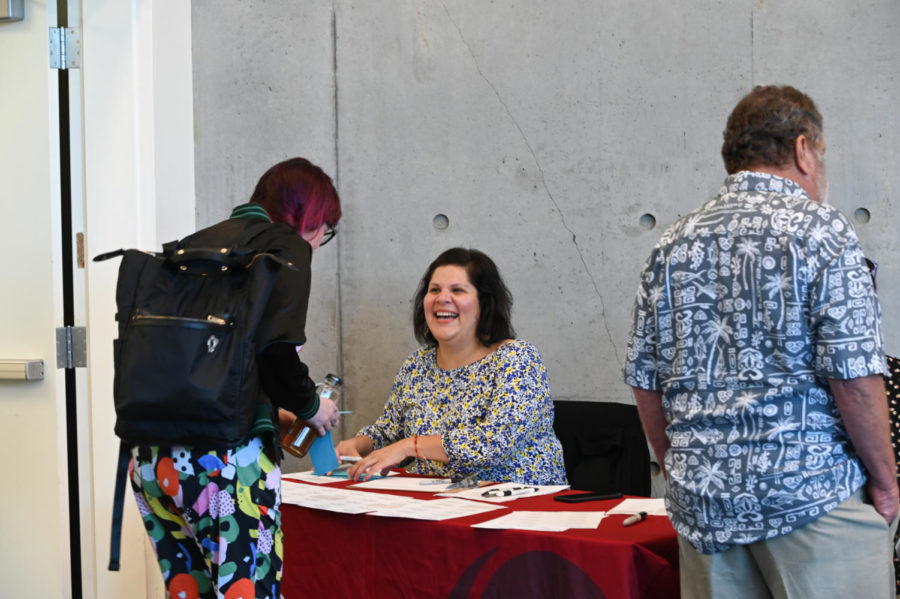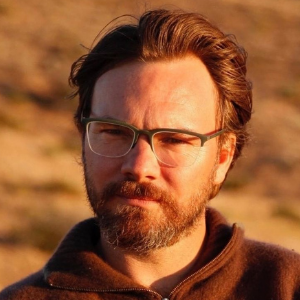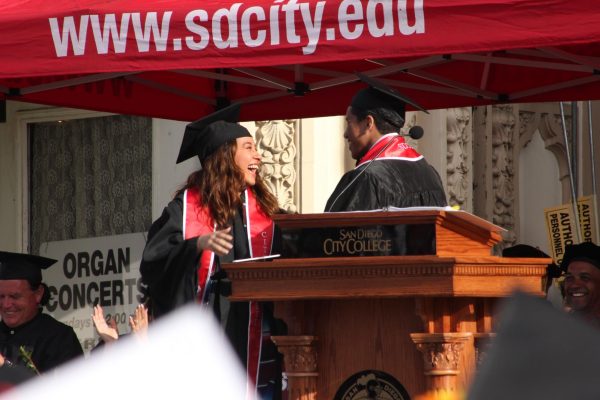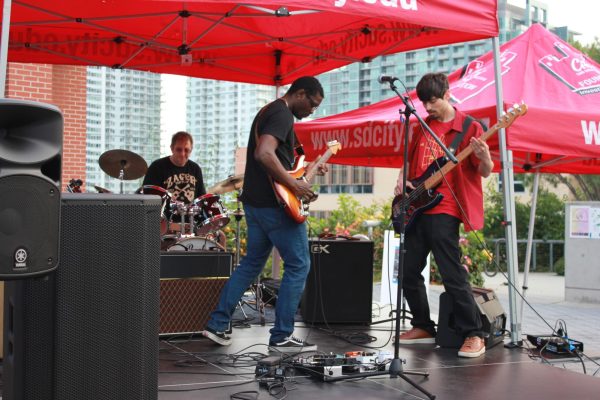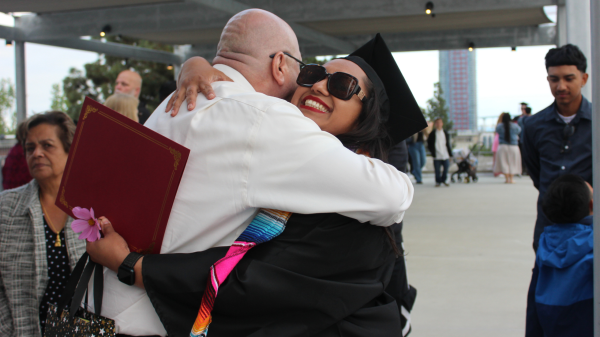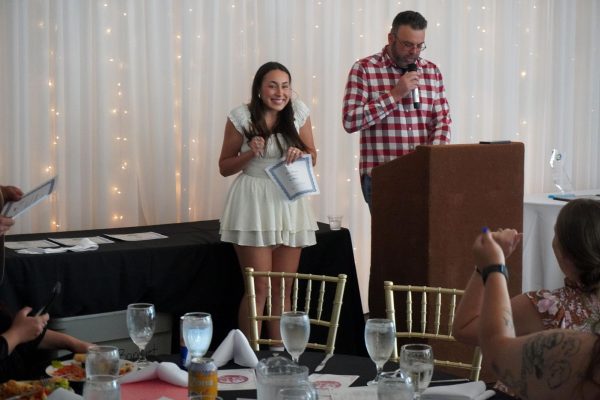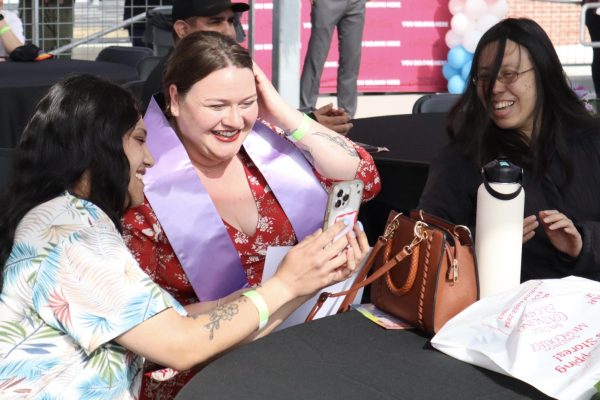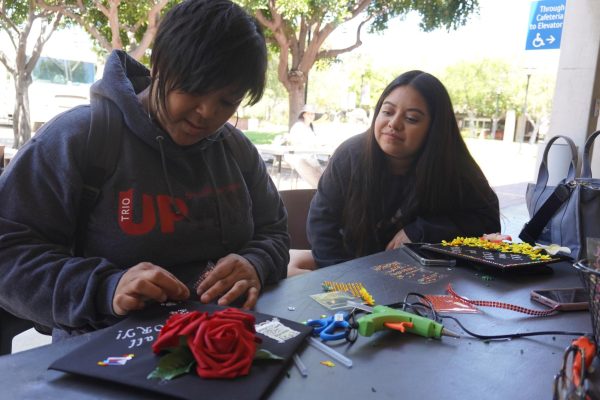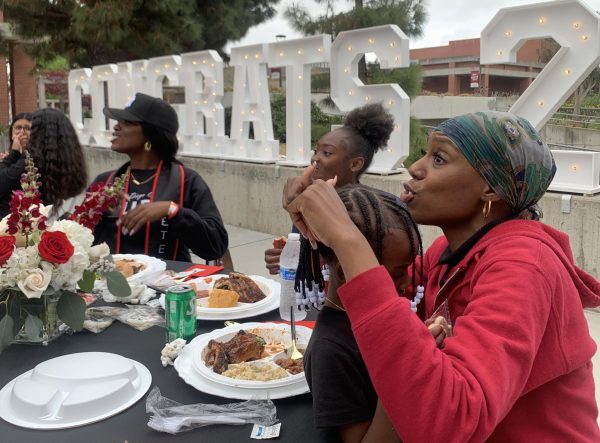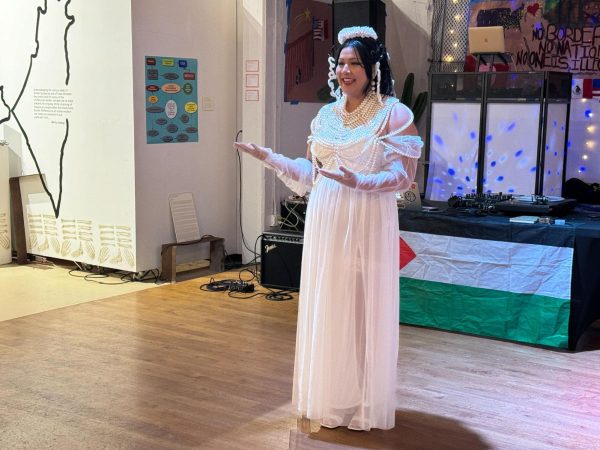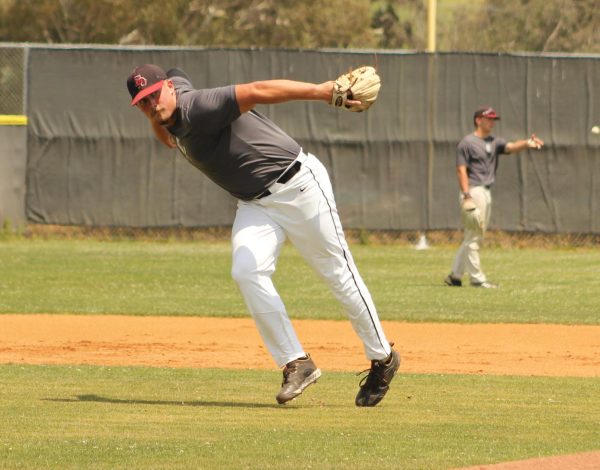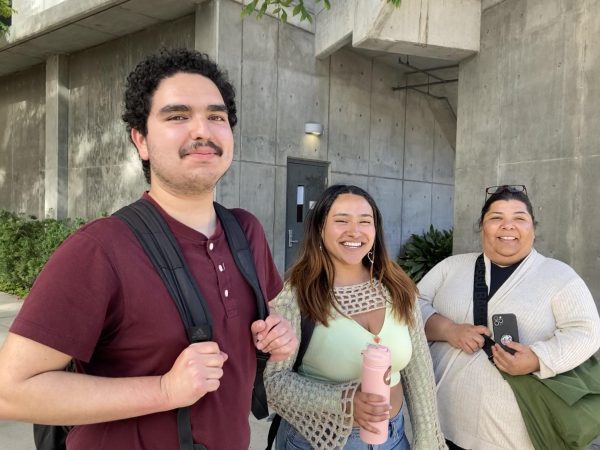City College poised to offer scholarships to Indigenous students (with update)
Among updates on the phase-in to on-campus instruction President Ricky Shabazz announces developments on Land Acknowledgement efforts
Sylvia Ramirez, who has acted as the scholarship coordinator since 2016, cheerfully welcomes guests to the 2019 Friends of Downtown Scholarship Luncheon. Connecting students with financial backing is key to the success of students of all backgrounds, and also serves as a means for San Diego City College to fulfill its mission of offering equitable and accessible education. San Diego City College on Flickr photo
January 25, 2022
Update (January 27, 5:40 p.m.): This story has been updated to include a response to an email inquiry to City College Public Information Officer Cesar Gumapas.
In a video shot on Jan. 20 at the San Diego City College bookstore, which has been active as a resource center throughout the COVID-19 pandemic, President Ricky Shabazz echoed the district-wide announcement of a delayed return to on-campus instruction.
Shabazz informed the City community of resources being allocated for health and safety, potentially including a vending machine with COVID-19 rapid tests available to students free of cost, to be located in the campus cafeteria.
He also took the opportunity to announce developments in the ongoing work toward crafting practical measures for the acknowledgment that City sits on unceded land belonging to the Kumeyaay Nation.
Among these efforts are the intent to hire a Native American Studies professor, as well as to create a scholarship for Indigenous students.
“We believe that this is the right thing to do in the spirit of social justice,” Shabazz said, “with the host of other things that we are doing to relieve the debt of any Indigenous student who has ever attended San Diego City College.”
In an email to City College Public Information Officer Cesar Gumapas on Jan. 21, City Times Media requested clarification as to whether this scholarship fund is meant to relieve all the past debt of Indigenous students or if it is a scholarship for future students as a symbolic relief of past debts.
Gumapas clarified in a written response on Jan. 26 that funds will be allocated both toward relieving all past debt, which involves 97 students and approximately $62,000, as well as establishing a scholarship for incoming Native American students.
Actions being taken at City stem from a collaboration with other local universities, including UC San Diego and San Diego State University.
According to Shabazz, work on City’s land acknowledgment initiative is being conducted by a team spearheaded by the Dean of Information and Learning Technology, Robbie Ewell.
UCSD professor Theresa Ambo, who will be the guest speaker at City’s 2022 Spring Convocation, has insisted that land acknowledgment efforts must go beyond mere words. The address will be broadcast on Thursday, Jan. 27 at 9 a.m. on the City College YouTube channel.
Ambo herself is a member of the Gabrieleño/Tongva and Luiseño tribes, and her research focuses on educational equity for American Indian students.
In her article, “The Future is in the Past: How Land-Grab Universities Can Shape the Future of Higher Education,” Ambo describes how California universities alone claimed over 1.7 million acres of Indigenous land as a part of the 1862 Morrill Act.
The act essentially legalized the federal appropriation of approximately 10.7 million acres of land across the United States from nearly 250 Native Nations.
The article describes how California “land-grab” universities (the term used for universities that received land as a result of the Morrill Act) profited from the appropriated territories by the sale of “scrip” and mineral rights. A “scrip” is a federal land grant and was commonly used in the 19th century as federal aid, providing states with land in lieu of money.
California universities made $3.6 million from the sale of these land vouchers alone.
This is but a fraction of the profits earned by these universities, which have been functioning on Indigenous land since their creation.
In June 2019 Governor Gavin Newsom made a historic acknowledgment of the genocide and “war of extermination” decreed by California’s first Governor Peter Burnett through an executive order in 1851.
As a result, 80% of California’s Native population was eradicated in 20 years.
Newsom’s acknowledgment, however, stopped short of offering reparations to the Native Californian communities.
The work to devise practical ways to honor and repay the debts owed to Indigenous Californians has been led by local tribes and coalitions for years.
Starting in 2019, east Oakland residents could opt to pay a voluntary land tax as a way of supporting Indigenous land rematriation.
The Shuumi Land Tax is the result of a campaign led by the Sogorea Te’ Land Trust led by urban Indigenous women. Residents can calculate their recommended contribution based on their income and/or type of property they own.
Still, scholars of Indigenous law and policy acknowledge the complexity of arriving at an adequate form of justice to Native Americans.
CalMatters reported that enrollment of Indigenous students at community colleges has gone down, especially during the pandemic. The relationship between Native communities and public educational institutions, which have been built on stolen lands, is complex. The history of forced assimilation in boarding schools is equally recent.
Funding tribal colleges has helped address some of the basic barriers to accessing higher education. The question remains as to what public institutions will do to create a more hospitable environment.
Shabazz’s statement suggests City is moving forward in the formal land acknowledgment process by creating channels for Indigenous student support.


